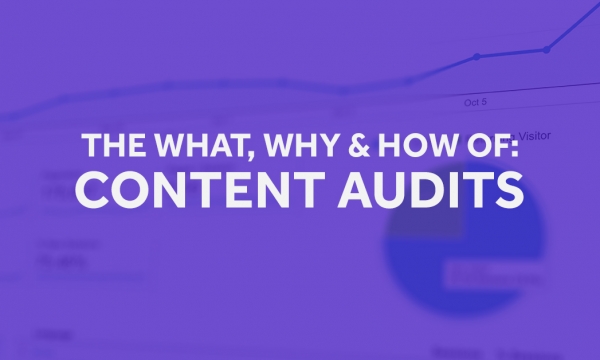The Econsultancy Marketing Budgets Report for 2014 provided some interesting insight about the marketing spend of brands in the coming year. One revelation to come through was that 74% of brands surveyed had intentions to increase their investment in content marketing activity in 2014 – the single biggest area of increased spend. The only other areas to see an increased investment are mobile marketing and lead generation.

Wind the clock back twelve months and, in the 2013 survey, just 70% that answered positively to the same question. In the 2012 survey, the topic of content marketing didn’t even feature.
The rising prominence of the “content marketing” is well documented but why it is the big focus for brands in 2014? Perhaps more importantly, what are the other 26% of brands missing out on?
Here are ten reasons why brands are investing more in content marketing this year.
1. Google demands content.
Google craves quality, relevant content and with that in mind, the survey results are perhaps unsurprising. However, Google isn’t the reason for investing content marketing, Google is the effect of investing in content marketing.
If your brand invests time in creating remarkable content that gets people talking, search engines will soon start to take notice. Google, like every other search engine, wants its search results to be as useful as possible for users and if your content earns recommendations and applause, that is as strong an indication as possible that what you are doing is relevant and useful to searchers.
2. Consumers avoid ads, but actively seek content.
Consumers want to increase their knowledge about a subject, so they actively crave and seek out good content. They then use this knowledge to measure the credentials of a brand or a product and to vindicate their decision to buy.
But whilst consumers want your content, it has never been easier for those consumers to avoid your advertising messages. In a world of DVRs, on-demand media short attention spans, the effectiveness of paid media has diminished.
Content allows brands to engage with consumers in a way that they actively want to be engaged with.
3. Content engages consumers at every stage of the buying process.
Content ensures that your brand is engaging with your potential consumers at every stage in the purchasing process.
Whilst inbound channels alone focus on establishing initial brand awareness, content encompasses inbound marketing but also nurtures leads, converts those leads and ensures that those consumers are retained and compelled to purchase again and again.
4. You’re no longer relying on publishers. You are the publisher.
Content marketing puts brands in control over the content, the delivery and the prominence of their message.
Instead of worrying about forward features lists, writing copy to the publisher’s demands or worrying that a major incident is going to knock their story off the front page, brands are now in complete control.
5. It is tried, tested and has been around for longer than you think.
If you ever hear someone claim that content marketing is the latest fad, the “next big thing” or the “flavour of the month”, give them a history lesson. Content marketing has been around for centuries.
The first copy of The Furrow, a magazine published by agricultural equipment manufacturer John Deere, was sent to farmers across the US in 1895. In 1990, a French tyre manufacturer by the name of Michelin published a guide to help the then 3,000 motorists in France at that time find shelter and a good meal whilst they waited for their car to be repaired. That particular guide is now regarded around the globe as the definitive word on fine dining.
6. Content can make a real difference to your customer service, which builds loyalty.
Getting a sale is great, but how do you plan on getting that customer to keep engaged and buy again? How do you turn that customer into one that reads your blog, signs up to your email newsletter, connects with you on social media and maybe even produces content for you?
Considered copy that helps your customer get the most from their purchase or demonstrates how your service can really make a difference is incredibly effective at fostering customer loyalty.
7. That means that increasing the lifetime value of every customer is easier.
The more engaged a customer is, the more they will listen to you. Content that meets their needs will be well received whereas ad that try to divert their attention will be dismissed and forgotten.
Brands want to drive more value out of every customer and content, when deployed correctly, is incredibly effective at engaging with those audiences and generating repeat sales.
8. Content is a fantastic recruitment tool and it’s great for staff morale.
Content isn’t just a shop window for your customers, it is also a shop window for your potential employees.
Talented people are highly sought-after, so use your content to reflect the ethos, the values and the personality of your brand. By giving prospective candidates a flavour of the environment that they could be working in, you are giving yourself a critical edge in attracting the people that are right for your business.
When you’re sat in your office, you’re also surrounded by people with their own ideas, their own opinions and their own views. If you can harness that, you’ll not only have a wealth of content ideas but also, a positive culture throughout the business that encourages staff involvement and ideas. That is incredibly powerful.
And for many employees, seeing their name and photo in the by-line of a blog is a huge morale boost.
9. It positions your brand as a market leader – and gets you involved in the debate.
Lots of brands spend a lot of effort shying away from debate, reluctant to stick their head above the parapet and speak out. Don’t be that brand – debate is good.
If people are involved in a debate about your product or your industry, it means that they care about it. Getting involved in the debate no only establishes your brand as one that shares that passion, but also as one that is prepared to lead the thought and opinion on that subject.
10. Content marketing delivers a strong ROI.
Of course, it all boils down to ROI. We hear this one a lot when it comes to content but the truth is, you can prove the ROI.
In fact, the ROI on content can compare very favourably to other marketing channels. A study by Kapost and Eloqua in the US found that over a 24 month period, content marketing was more than three times more effective than other digital channels.
Take that figure, along with the many other benefits of content marketing, to your CEO and you’ll have a very compelling argument.
How does your content marketing stack strategy stack up? Get a content marketing review from one of our experts.


